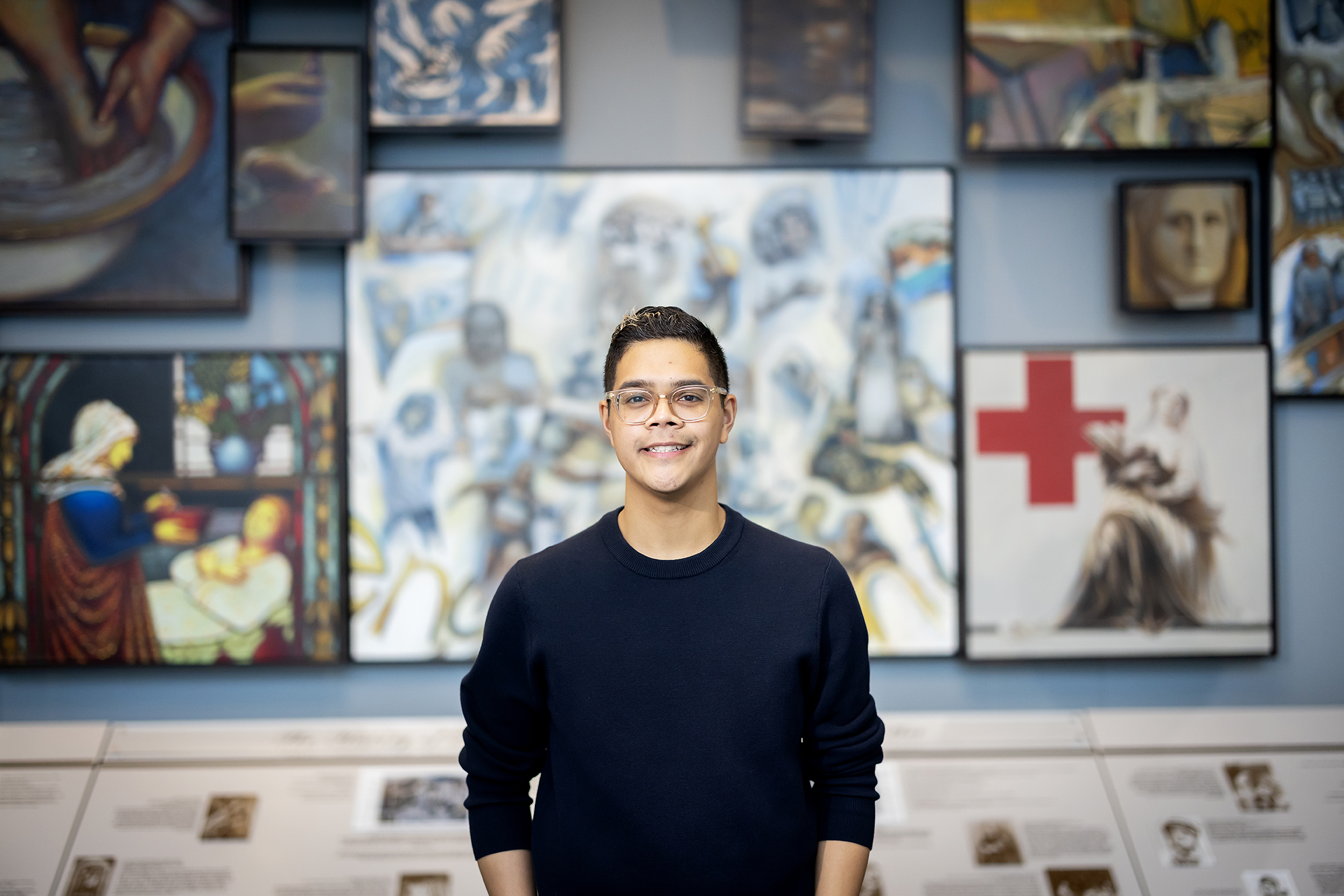
Image: Aditya Irawan/NurPhoto via AP Images

Nursing Ph.D. student Andre Rosario’s research looks at nurse migration, the lack of regulation around international nurse recruitment, and its impact on the nursing workforce in the United States. His path to these interests was personal.
“My parents immigrated to the U.S. from the Philippines and my mom worked as a registered nurse in a critical care trauma unit in Atlantic City for the majority of her 30-year-plus career,” he says. Rosario himself went to Penn for the undergraduate nursing program and his brother is also a nurse.
“We saw the opportunities that my mom was able to create for us with her career in nursing,” he says. “That’s something that blossomed for us as well.”
While he enjoyed working as a nurse, Rosario says he always wanted to have a deeper perspective on health policy and nursing workforce policy and decided to pursue a Ph.D. With his broad research interests, Rosario applied for funding from the Center for the Study of Ethnicity, Race, and Immigration (CSERI), which has a goal to support cutting-edge research and encourage the formation of collaborative research networks at Penn and beyond.
“It was exciting to get the CSERI grant because I have one perspective on these different policies from my nursing background, but it’s been really helpful to think through health policy and immigration policy from a more interdisciplinary perspective,” he says. “It was fantastic to have that support and get connected across the university to other scholars studying immigration, particularly sociology and even city planning, looking at immigration in an urban context.”
Rosario’s dissertation, “A Permanent Solution: Immigrant Nurses in the U.S. and Political Action, 1989-2009,” examines how Filipino immigrant nurses in the U.S. have influenced policies related to recruiting nurses from other countries.
During the COVID-19 pandemic, Filipino nurses died at outsized rates. They make up 4% of nurses in the U.S. but accounted for 32% of deaths among health care workers. Rosario says Filipino nurses have attributed this to a “Filipino culture” of putting one’s needs aside to help and serve others, valuing selflessness, commitment, and deference.
He found that the stereotype of Filipino nurses as “cooperative” or “gentle, mild, and passive” lets healthcare administrators off the hook from taking measures to protect and retain Filipino nurses—representing a language of disempowerment. Meanwhile, Andre’s research seeks to bring forward how Filipino nurses challenge this stereotype and push for policies that protect immigrant nurses.
There’s been a severe shortage of nurses across the country in the wake of the pandemic, Rosario says, so policymakers are again bringing up using immigration reform to create another path for nurses from other countries to come to the U.S. At the same time there’s a growing concern that as the United States lures nurses from other countries, it exacerbates nursing shortages in those countries.
“I hope what comes forward in my work is that people realize that the health care demands that keep expanding in the United States affect health care delivery and the workforce in other countries,” he says. “I also hope to show that immigrant nurses in the United States do have a political voice, despite being a smaller proportion of the nursing workforce. They have avenues of making their voices known and asserting the sort of policies that might be more effective and efficient for them to work in the United States.”
Kristen de Groot

Image: Aditya Irawan/NurPhoto via AP Images

nocred

Image: Michael Levine

A West Philadelphia High School student practices the drum as part of a July summer program in partnership with the Netter Center for Community Partnerships and nonprofit Musicopia.
nocred